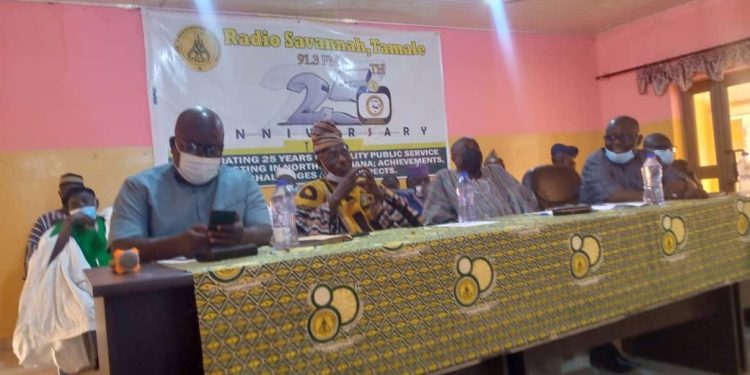Director-General of Ghana Broadcasting Corporation (GBC) has announced that plans are underway to convert some of the GBC’s relay Frequency Modulation (FM) stations into autonomous FM stations.
He said “We are expecting that in the next few years, the GBC relay stations at Gambaga, Bimbilla, Bole and Damongo should be transitioned into autonomous FM stations to properly serve the needs of the people.”
Professor Alhassan, who announced this at a public lecture to commemorate the 25th anniversary of the establishment of Radio Savannah in Tamale, said the move was to facilitate public service broadcasting for the benefit of the people.
Radio Savannah, located in Tamale, was established in 1996 by the GBC to among others objectives, enhance public service broadcasting for the socio-economic development of the people of the region.
The public lecture was on the theme: “Celebrating 25 Years of Public Service Broadcasting in Northern Ghana: Achievements, Challenges and Prospects”.
Professor Alhassan said GBC was exploring more innovative ways and platforms that would enable it to reach out to the masses in a more convenient way.
Mr Yaw Ampofo Kwarteng, Northern Regional Director of GBC said over the years, Radio Savannah had played crucial roles towards peacebuilding and conflict resolution by consistently supporting initiatives that ensured peaceful coexistence in the region.
Mr Kwarteng said “We have improved on our programmes’ content to suit the demands of our cherished listeners and we have also begun rebranding the station in earnest.”
Yapeiwura Dr Abdulai Baba Tanko Zakaria, Paramount Chief of Yapei Traditional Area in the Savannah Region, lauded Radio Savannah for playing important roles in deepening democracy in the region.
He said the establishment of Radio Savannah ensured that “The people of the Northern Region have had their voices heard more on issues of political party democracy.”
He also commended Radio Savannah for promoting awareness creation in health and sanitation, sensitising farmers on some of the best agricultural practices that enhanced food security in the region.”
GBC Relay Stations To Become Autonomous FM Stations
Source:
GNA










Discussion about this post